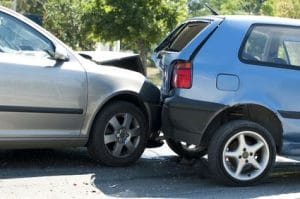As an attorney specializing in workers’ compensation cases, I know that most seriously injured workers would agree that their accidents have had a catastrophic effect on their lives.
- They are in pain;
- They receive less money per week than before their injury; and,
- They often cannot get the insurance company to pay for the medical treatment that they need to help them get better and back to work.
That is truly a catastrophe. But does it meet the legal definition of a catastrophic injury under the Georgia workers’ compensation law? Even if it does, what difference does that make?
Catastrophic designation makes a huge difference as far as the protection and benefits provided to someone who has been injured at work.
Why is a catastrophic designation important?
Insurance companies have watered down Georgia’s workers’ compensation laws. Because of that, they often do not provide enough protection for injured workers. Here are just a few examples:
- After a certain period of time, an insurance company can reduce your weekly workers’ compensation check (for example from $675 to $450) if the doctor has released you to light work. They file what is called a Form WC-104. This can happen even if your employer has no light work and cannot find work within your restrictions.
- If you return to work and work more than two years without receiving a workers’ compensation check and then your injury worsens without a new accident, you may never be able to draw a workers’ compensation check again – even if you are in a wheelchair.
- You can normally only draw a check for a maximum of 350 to 400 weeks from when you were injured, even if you have a serious work injury that still prevents you from going back to work
- The insurance company can get off the hook for paying for most medical treatment after 400 weeks
How a Catastrophic Designation Can Help You?
With all these cards in the deck stacked against injured workers, it is good to know that there is at least one card in your favor. That card is catastrophic injury.
In Georgia, many of the bad laws mentioned above no longer apply to you once you receive a catastrophic designation. For example:
- You can received temporary total disability benefits (lost wages) as long as you were in fact unable to work, even if it was more than 400 weeks since your work injury. You do need to know that statutes of limitation still apply.
- The insurance company cannot reduced your workers’ compensation check just because your doctor said you were able to do some sort of light work unless there was actually a light duty job to do.
- You get a rehabilitation person to work with you and help you get better and try to find a new career or job that you were able to do with the limitations from your injury.
- You could continue getting medical treatment more than 400 weeks after your injury
How do I qualify for a catastrophic designation?
Now that you know how important a catastrophic designation is under Georgia Law, you need to know how to get it. The first step is to look at the Georgia law that talks about catastrophic designation.
A statute in the Georgia Workers’ Compensation Act defines catastrophic designation. That statute is Official Code of Georgia, Annotated, §34-9-200.1.
This law has many details. You can read the law below, but I will then break the parts of the law down to explain it in more detail.
You may find it helpful to skip the definition and just go straight to the explanation of the definition. If you do want to read the legal definition from the statute, I have bolded the important catastrophic subcategories in the definition.
The catastrophic designation definition
- (g) “Catastrophic injury” means any injury which is one of the following:
- (1) Spinal cord injury involving severe paralysis of an arm, a leg, or the trunk;
- (2) Amputation of an arm, a hand, a foot, or a leg involving the effective loss of use of that appendage;
- (3) Severe brain or closed head injury as evidenced by:
- (A) Severe sensory or motor disturbances;
- (B) Severe communication disturbances;
- (C) Severe complex integrated disturbances of cerebral function;
- (D) Severe disturbances of consciousness;
- (E) Severe episodic neurological disorders; or
- (F) Other conditions at least as severe in nature as any condition provided in subparagraphs (A) through (E) of this paragraph;
- (4) Second or third degree burns over 25 percent of the body as a whole or third degree burns to 5 percent or more of the face or hands;
- (5) Total or industrial blindness; or
- (6)(A) Any other injury of a nature and severity that prevents the employee from being able to perform his or her prior work and any work available in substantial numbers within the national economy for which such employee is otherwise qualified; provided, however, if the injury has not already been accepted as a catastrophic injury by the employer and the authorized treating physician has released the employee to return to work with restrictions, there shall be a rebuttable presumption, during a period not to exceed 130 weeks from the date of injury, that the injury is not a catastrophic injury. During such period, in determining whether an injury is catastrophic, the board shall give consideration to all relevant factors including, but not limited to, the number of hours for which an employee has been released. A decision granting or denying disability income benefits under Title II or supplemental security income benefits under Title XVI of the Social Security Act shall be admissible in evidence and the board shall give the evidence the consideration and deference due under the circumstances regarding the issue of whether the injury is a catastrophic injury; provided, however, that no presumption shall be created by any decision granting or denying disability income benefits under Title II or supplemental security income benefits under Title XVI of the Social Security Act.
The specific subcategories of catastrophic designation
As this law shows, there are six separate subcategories that can entitle your injury to a catastrophic designation in a Georgia workers’ compensation case.
- Severe spinal cord injury
- Amputation
- Head injury
- Burns
- Blindness
- The (g)(6) “catch all” category
The first five categories are specific types of injuries. The statute defines how severe each type of injury must be. In each of these first five categories, you need to prove that you have the type of injury that is stated in the statute.
For example, to qualify for a catastrophic injury under O.C.G.A. 34-9-200.1(g)(4), you need to show either that you have
- Second degree burns over 25 percent or more of your body; or
- Third degree burns to 5 percent or more of your face or hands
Proving any of these separate subcategories qualifies you for a catastrophic designation. You do not have to prove more than one to get your injury designated catastrophic, but there are situations where it could make sense to try to prove more than one category.
The “catch-all” subcategory for catastrophic designation
Many severe work injuries do not involve spinal cord injury, burns, blindness, amputations, or head injuries. The sixth catastrophic category takes this into account and is more complicated.
Attorneys call this the the “catch-all” category. It covers any type of injury but requires that you demonstrate an inability to work as a result of your injury. In contrast, the first five subcategories do not necessarily require you to demonstrate an inability to work.
To qualify under the sixth “catch-all” category, you must prove two things:
- That you are unable to perform your prior work
- The you are unable to perform any work that is available in substantial numbers within the national economy for which you are otherwise qualified.
So what does that mean? This test is basically the same test used to decide if you qualify for Social Security disability. In order to prove you meet this test, you need to know what your restrictions are from your doctors.

You also need a good vocational expert to review your work restrictions age, education and past work experience. This vocational expert will need to give an expert opinion as to what jobs you are still able to perform.
The insurance company will almost always have their own expert who may disagree with your expert. This is why it is so important to have someone on your side who knows and understands the special rules of catastrophic designation.
What if I need help?
Sometimes, you do not need an attorney in your workers’ compensation case. But anyone dealing with an injury that is severe enough that it could qualify for a catastrophic designation should at least talk to an attorney who specializes in workers’ compensation. The risks of not talking to an attorney are just too great when dealing with a serious injury. I would always recommend at least speaking with a workers’ compensation attorney if you believe your injury may qualify for a catastrophic designation.










